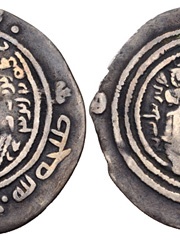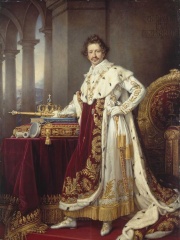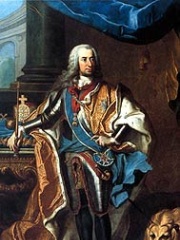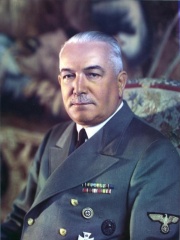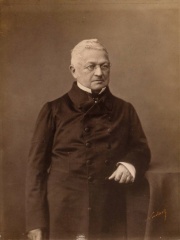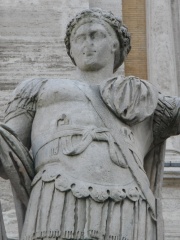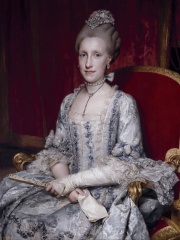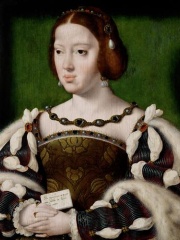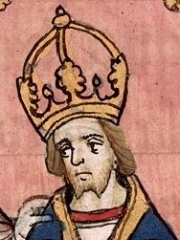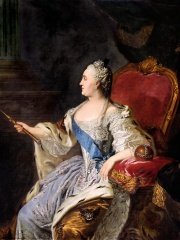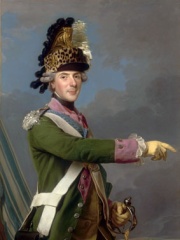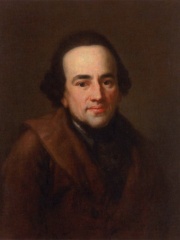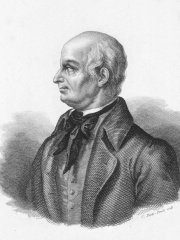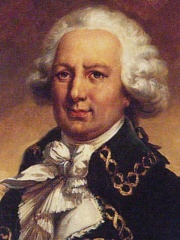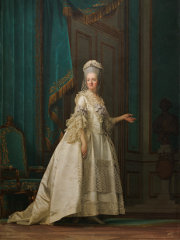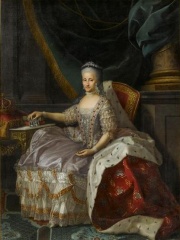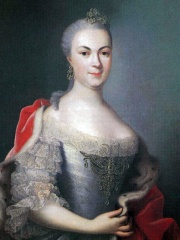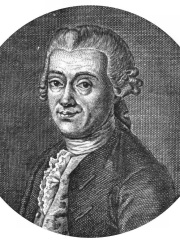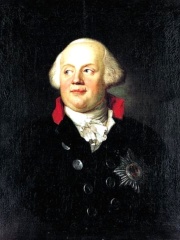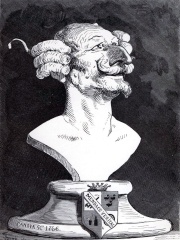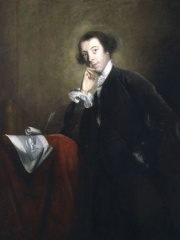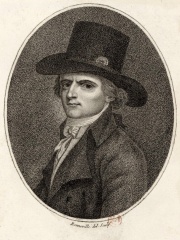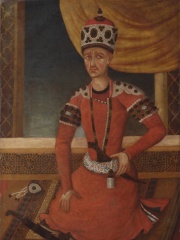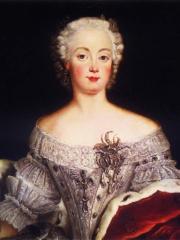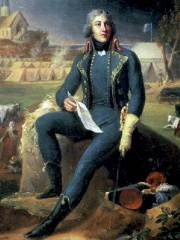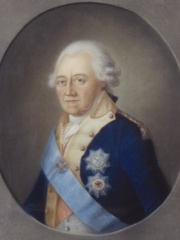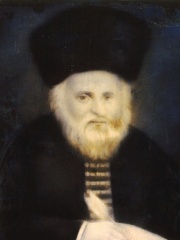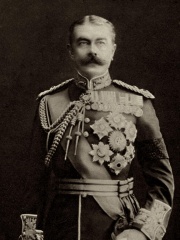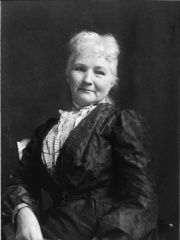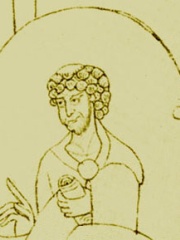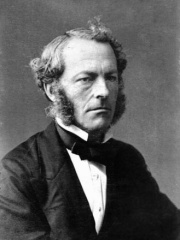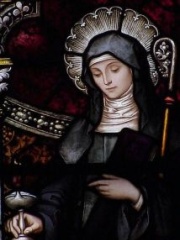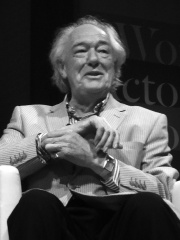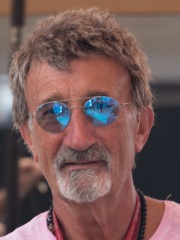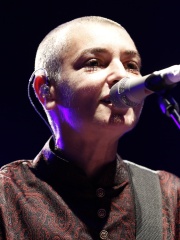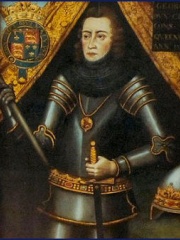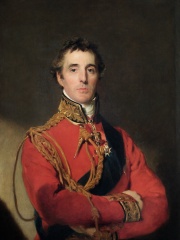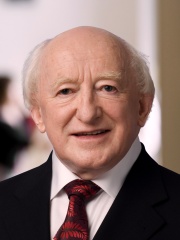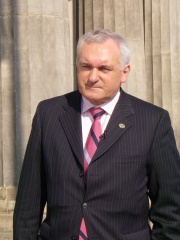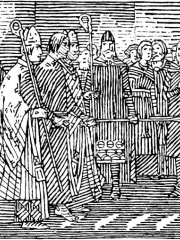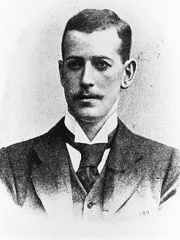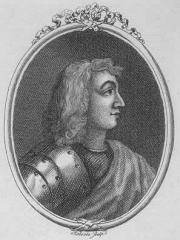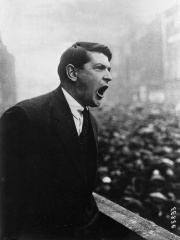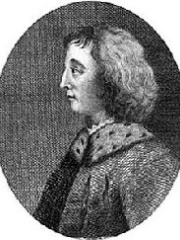Politician
Edmund Burke
1729 - 1797
EN.WIKIPEDIA PAGE VIEWS (PV)

 Edmund Burke
Edmund Burke
His biography is available in 80 different languages on Wikipedia (up from 79 in 2024). Edmund Burke is the 1,039th most popular politician (down from 776th in 2024), the 15th most popular biography from Ireland (down from 12th in 2019) and the most popular Irish Politician.
Edmund Burke is most famous for his work on the French Revolution, in which he argued that the revolution was a natural consequence of the Enlightenment and the ideas of the philosophes.
Memorability Metrics
Page views of Edmund Burke by language
Among Politicians
Among politicians, Edmund Burke ranks 1,039 out of 19,576. Before him are Marwan I, Ludwig I of Bavaria, Henry I of England, Charles VII, Holy Roman Emperor, Konstantin von Neurath, and Adolphe Thiers. After him are Constantine II, Maria Luisa of Spain, Eleanor of Austria, John I Tzimiskes, Jair Bolsonaro, and Henry VII, Holy Roman Emperor.
Most Popular Politicians in Wikipedia
Go to all RankingsMarwan I
623 - 685
HPI: 75.70
Rank: 1,033
Ludwig I of Bavaria
1786 - 1868
HPI: 75.70
Rank: 1,034
Henry I of England
1068 - 1135
HPI: 75.70
Rank: 1,035
Charles VII, Holy Roman Emperor
1697 - 1745
HPI: 75.69
Rank: 1,036
Konstantin von Neurath
1873 - 1956
HPI: 75.69
Rank: 1,037
Adolphe Thiers
1797 - 1877
HPI: 75.69
Rank: 1,038
Edmund Burke
1729 - 1797
HPI: 75.69
Rank: 1,039
Constantine II
316 - 340
HPI: 75.68
Rank: 1,040
Maria Luisa of Spain
1745 - 1792
HPI: 75.67
Rank: 1,041
Eleanor of Austria
1498 - 1558
HPI: 75.65
Rank: 1,042
John I Tzimiskes
925 - 976
HPI: 75.65
Rank: 1,043
Jair Bolsonaro
1955 - Present
HPI: 75.65
Rank: 1,044
Henry VII, Holy Roman Emperor
1275 - 1313
HPI: 75.64
Rank: 1,045
Contemporaries
Among people born in 1729, Edmund Burke ranks 4. Before him are Catherine the Great, Gotthold Ephraim Lessing, and Louis, Dauphin of France. After him are Moses Mendelssohn, Lazzaro Spallanzani, Louis Antoine de Bougainville, Juliana Maria of Brunswick-Wolfenbüttel, Maria Antonia Ferdinanda of Spain, Antonio Soler, Countess Maria Louise Albertine of Leiningen-Dagsburg-Falkenburg, and Johann Daniel Titius. Among people deceased in 1797, Edmund Burke ranks 5. Before him are Frederick William II of Prussia, Baron Munchausen, Mary Wollstonecraft, and Horace Walpole. After him are François-Noël Babeuf, James Hutton, Agha Mohammad Khan Qajar, Elisabeth Christine of Brunswick-Wolfenbüttel-Bevern, Lazare Hoche, Frederick II Eugene, Duke of Württemberg, and Vilna Gaon.
Others Born in 1729
Go to all RankingsCatherine the Great
NOBLEMAN
1729 - 1796
HPI: 86.60
Rank: 1
Gotthold Ephraim Lessing
WRITER
1729 - 1781
HPI: 77.54
Rank: 2
Louis, Dauphin of France
POLITICIAN
1729 - 1765
HPI: 77.27
Rank: 3
Edmund Burke
POLITICIAN
1729 - 1797
HPI: 75.69
Rank: 4
Moses Mendelssohn
PHILOSOPHER
1729 - 1786
HPI: 73.85
Rank: 5
Lazzaro Spallanzani
BIOLOGIST
1729 - 1799
HPI: 73.44
Rank: 6
Louis Antoine de Bougainville
EXPLORER
1729 - 1811
HPI: 72.81
Rank: 7
Juliana Maria of Brunswick-Wolfenbüttel
COMPANION
1729 - 1796
HPI: 69.30
Rank: 8
Maria Antonia Ferdinanda of Spain
COMPANION
1729 - 1785
HPI: 68.39
Rank: 9
Antonio Soler
COMPOSER
1729 - 1783
HPI: 67.39
Rank: 10
Countess Maria Louise Albertine of Leiningen-Dagsburg-Falkenburg
NOBLEMAN
1729 - 1818
HPI: 65.86
Rank: 11
Johann Daniel Titius
ASTRONOMER
1729 - 1796
HPI: 64.06
Rank: 12
Others Deceased in 1797
Go to all RankingsFrederick William II of Prussia
POLITICIAN
1744 - 1797
HPI: 79.39
Rank: 1
Baron Munchausen
MILITARY PERSONNEL
1720 - 1797
HPI: 77.47
Rank: 2
Mary Wollstonecraft
WRITER
1759 - 1797
HPI: 76.52
Rank: 3
Horace Walpole
POLITICIAN
1717 - 1797
HPI: 76.39
Rank: 4
Edmund Burke
POLITICIAN
1729 - 1797
HPI: 75.69
Rank: 5
François-Noël Babeuf
JOURNALIST
1760 - 1797
HPI: 74.14
Rank: 6
James Hutton
GEOLOGIST
1726 - 1797
HPI: 71.28
Rank: 7
Agha Mohammad Khan Qajar
POLITICIAN
1742 - 1797
HPI: 69.77
Rank: 8
Elisabeth Christine of Brunswick-Wolfenbüttel-Bevern
COMPANION
1715 - 1797
HPI: 68.26
Rank: 9
Lazare Hoche
MILITARY PERSONNEL
1768 - 1797
HPI: 67.03
Rank: 10
Frederick II Eugene, Duke of Württemberg
NOBLEMAN
1732 - 1797
HPI: 66.94
Rank: 11
Vilna Gaon
RELIGIOUS FIGURE
1720 - 1797
HPI: 66.86
Rank: 12
In Ireland
Among people born in Ireland, Edmund Burke ranks 15 out of NaN. Before him are Herbert Kitchener, 1st Earl Kitchener (1850), Mary Harris Jones (1837), John Scotus Eriugena (810), Sir George Stokes, 1st Baronet (1819), Brigid of Kildare (451), and Bram Stoker (1847). After him are Michael Gambon (1940), Francis Bacon (1909), Eddie Jordan (1948), Sinéad O'Connor (1966), George Plantagenet, 1st Duke of Clarence (1449), and Arthur Wellesley, 1st Duke of Wellington (1769).
Others born in Ireland
Go to all RankingsHerbert Kitchener, 1st Earl Kitchener
ENGINEER
1850 - 1916
HPI: 79.10
Rank: 9
Mary Harris Jones
SOCIAL ACTIVIST
1837 - 1930
HPI: 78.47
Rank: 10
John Scotus Eriugena
PHILOSOPHER
810 - 877
HPI: 78.15
Rank: 11
Sir George Stokes, 1st Baronet
MATHEMATICIAN
1819 - 1903
HPI: 77.65
Rank: 12
Brigid of Kildare
RELIGIOUS FIGURE
451 - 525
HPI: 75.96
Rank: 13
Bram Stoker
WRITER
1847 - 1912
HPI: 75.89
Rank: 14
Edmund Burke
POLITICIAN
1729 - 1797
HPI: 75.69
Rank: 15
Michael Gambon
ACTOR
1940 - 2023
HPI: 75.66
Rank: 16
Francis Bacon
PAINTER
1909 - 1992
HPI: 75.31
Rank: 17
Eddie Jordan
BUSINESSPERSON
1948 - 2025
HPI: 75.29
Rank: 18
Sinéad O'Connor
SINGER
1966 - 2023
HPI: 75.08
Rank: 19
George Plantagenet, 1st Duke of Clarence
POLITICIAN
1449 - 1478
HPI: 75.00
Rank: 20
Arthur Wellesley, 1st Duke of Wellington
POLITICIAN
1769 - 1852
HPI: 74.95
Rank: 21
Among Politicians In Ireland
Among politicians born in Ireland, Edmund Burke ranks 1. After him are George Plantagenet, 1st Duke of Clarence (1449), Arthur Wellesley, 1st Duke of Wellington (1769), Michael D. Higgins (1941), Bertie Ahern (1951), Harald Gille (1103), John Boland (1870), Causantín mac Cináeda (836), Michael Collins (1890), Brian Cowen (1960), Mary Robinson (1944), and Malcolm II of Scotland (954).
Edmund Burke
1729 - 1797
HPI: 75.69
Rank: 1
George Plantagenet, 1st Duke of Clarence
1449 - 1478
HPI: 75.00
Rank: 2
Arthur Wellesley, 1st Duke of Wellington
1769 - 1852
HPI: 74.95
Rank: 3
Michael D. Higgins
1941 - Present
HPI: 71.57
Rank: 4
Bertie Ahern
1951 - Present
HPI: 71.46
Rank: 5
Harald Gille
1103 - 1136
HPI: 71.10
Rank: 6
John Boland
1870 - 1958
HPI: 69.64
Rank: 7
Causantín mac Cináeda
836 - 877
HPI: 68.81
Rank: 8
Michael Collins
1890 - 1922
HPI: 68.59
Rank: 9
Brian Cowen
1960 - Present
HPI: 68.47
Rank: 10
Mary Robinson
1944 - Present
HPI: 65.32
Rank: 11
Malcolm II of Scotland
954 - 1034
HPI: 65.26
Rank: 12
